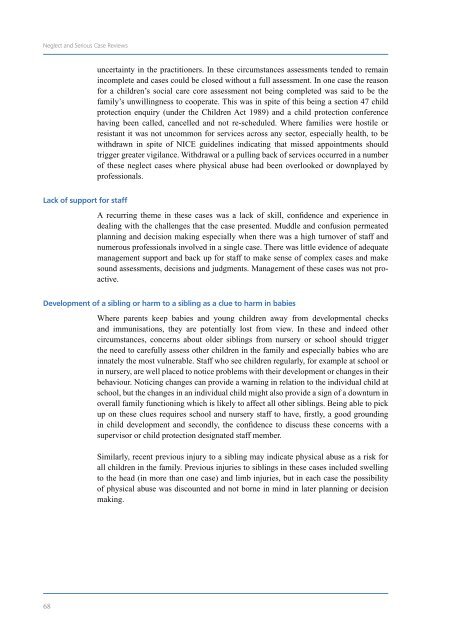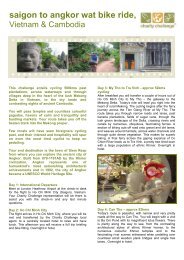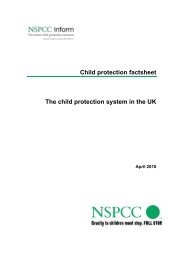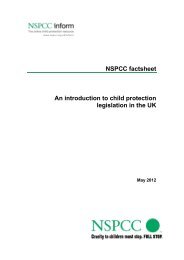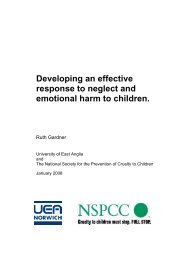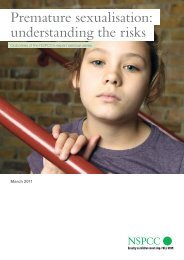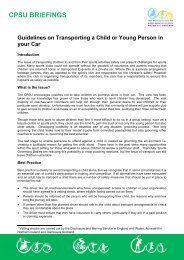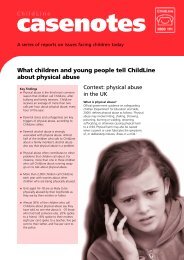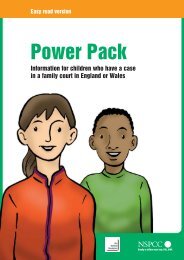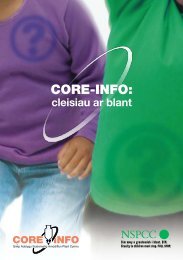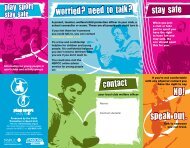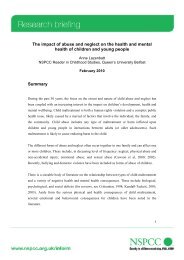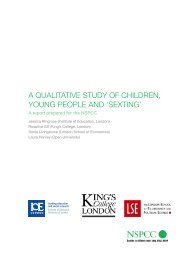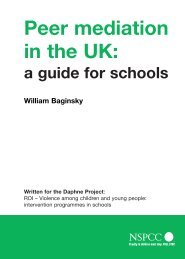Neglect and serious case reviews (PDF, 735KB) - nspcc
Neglect and serious case reviews (PDF, 735KB) - nspcc
Neglect and serious case reviews (PDF, 735KB) - nspcc
Create successful ePaper yourself
Turn your PDF publications into a flip-book with our unique Google optimized e-Paper software.
<strong>Neglect</strong> <strong>and</strong> Serious Case Reviews<br />
lack of support for staff<br />
uncertainty in the practitioners. In these circumstances assessments tended to remain<br />
incomplete <strong>and</strong> <strong>case</strong>s could be closed without a full assessment. In one <strong>case</strong> the reason<br />
for a children’s social care core assessment not being completed was said to be the<br />
family’s unwillingness to cooperate. This was in spite of this being a section 47 child<br />
protection enquiry (under the Children Act 1989) <strong>and</strong> a child protection conference<br />
having been called, cancelled <strong>and</strong> not re-scheduled. Where families were hostile or<br />
resistant it was not uncommon for services across any sector, especially health, to be<br />
withdrawn in spite of NICE guidelines indicating that missed appointments should<br />
trigger greater vigilance. Withdrawal or a pulling back of services occurred in a number<br />
of these neglect <strong>case</strong>s where physical abuse had been overlooked or downplayed by<br />
professionals.<br />
A recurring theme in these <strong>case</strong>s was a lack of skill, confidence <strong>and</strong> experience in<br />
dealing with the challenges that the <strong>case</strong> presented. Muddle <strong>and</strong> confusion permeated<br />
planning <strong>and</strong> decision making especially when there was a high turnover of staff <strong>and</strong><br />
numerous professionals involved in a single <strong>case</strong>. There was little evidence of adequate<br />
management support <strong>and</strong> back up for staff to make sense of complex <strong>case</strong>s <strong>and</strong> make<br />
sound assessments, decisions <strong>and</strong> judgments. Management of these <strong>case</strong>s was not proactive.<br />
development of a sibling or harm to a sibling as a clue to harm in babies<br />
68<br />
Where parents keep babies <strong>and</strong> young children away from developmental checks<br />
<strong>and</strong> immunisations, they are potentially lost from view. In these <strong>and</strong> indeed other<br />
circumstances, concerns about older siblings from nursery or school should trigger<br />
the need to carefully assess other children in the family <strong>and</strong> especially babies who are<br />
innately the most vulnerable. Staff who see children regularly, for example at school or<br />
in nursery, are well placed to notice problems with their development or changes in their<br />
behaviour. Noticing changes can provide a warning in relation to the individual child at<br />
school, but the changes in an individual child might also provide a sign of a downturn in<br />
overall family functioning which is likely to affect all other siblings. Being able to pick<br />
up on these clues requires school <strong>and</strong> nursery staff to have, firstly, a good grounding<br />
in child development <strong>and</strong> secondly, the confidence to discuss these concerns with a<br />
supervisor or child protection designated staff member.<br />
Similarly, recent previous injury to a sibling may indicate physical abuse as a risk for<br />
all children in the family. Previous injuries to siblings in these <strong>case</strong>s included swelling<br />
to the head (in more than one <strong>case</strong>) <strong>and</strong> limb injuries, but in each <strong>case</strong> the possibility<br />
of physical abuse was discounted <strong>and</strong> not borne in mind in later planning or decision<br />
making.


